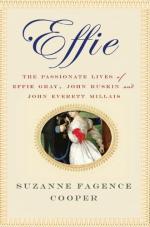|
This section contains 8,582 words (approx. 29 pages at 300 words per page) |

|
SOURCE: "John Ruskin and the Political Economy of Literature," in The Economy of Literature, The Johns Hopkins University Press, 1978, pp. 129-51.
In the following essay, Shell explores Ruskin's belief that aesthetic taste is inseparable from political and economic realities.
John Ruskin attempted to hold in a single vision the theoretical and practical problems of esthetics and economics. In works such as The Political Economy of Art (1857), Munera Pulveris (1862-63), and Sesame and Lilies (1865), he sought to explain the economic value of art and the relation of esthetic taste to economic organization. For Ruskin, esthetics and politics are finally inseparable. The special considerations by which he binds them together are the most original aspects of his critical theory.
Many students have not understood the need for and significance of a political economy of art and literature. They have misunderstood Ruskin's economic and political theory and criticism of art and...
|
This section contains 8,582 words (approx. 29 pages at 300 words per page) |

|


